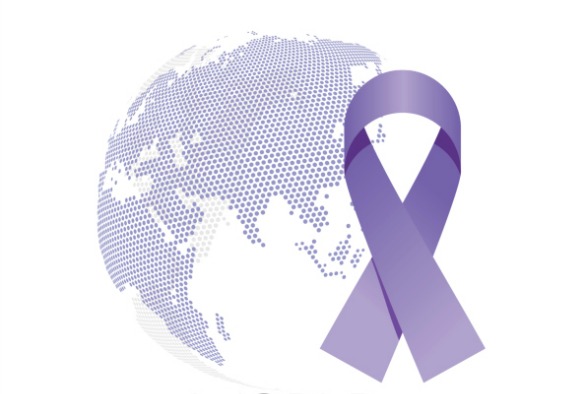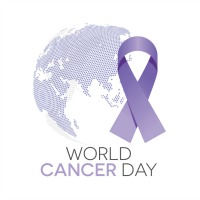
Professor Sarah Coupland, is the lead of the Liverpool Ocular Oncology Research Group (LOORG); Consultant Histopathologist; and the George Holt Chair of Pathology at the University. She is also the Director of the Liverpool Tissue Bank and Director of the University’s North West Cancer Research Centre:
“World Cancer Day, also known as WCD, takes place every year on 4 February. It was founded by the Union of International Cancer Control (UICC), with the first WCD taking place in 2005. WCD is one singular initiative allowing cancer charities and non-profit organisations, cancer researchers, health care workers, institutions, businesses and governments to unite in the fight against the global cancer epidemic.
“Most importantly, WCD aims to raise awareness of cancer, to educate people of all ages about the different types of cancers – both rare and common -, how to detect them earlier, the treatment options available (and those in development), and to encourage cancer prevention where possible.
“The aims of WCD chime with those of the North West Cancer Research Centre – University of Liverpool, which has been supported by NWCR since April 2014.
“Because of the chronic high incidence and mortality rates of cancer in Liverpool-Merseyside over the last decade, the city has the dubious honour of being crowned the “Cancer Capital of Europe”. Hence, one of the main goals of the Centre is to reduce the impact of cancers across the Liverpool-Merseyside region. And yet, many of the cancer ‘big hitters’ in our region – e.g. lung cancer, head-and-neck cancer, pancreas and colon cancer – are preventable, or potentially treatable, if only detected early. Therefore, the Cancer Centre is working with all Regional stakeholders, including local authorities, local Members of Parliament, healthcare academics, Public Health England, the Clinical Networks and commissioners, to inform people about common symptoms associated with various cancers, in order to encourage earlier presentation to their doctor; and promoting healthier lifestyles and diets, to reduce cancer risk.
“The Cancer Research Centre is also very active in outreach and educational activities with the public: it interacts closely with the public with tours of the Centre’s labs for school children, patients and fundraisers, so they can ‘meet the scientists’ to better understand the innovative world class research they are doing in the fight against cancer.
World class facilities
“The Centre’s research excellence covers all parts of the bench-to-bedside spectrum: examples of fundamental research include the understanding of deubiquitylases (DUBs) and their effect on cancer signaling pathways; radiation biology and DNA repair mechanisms; and pathways regulating cancer cell apoptosis. On the translational end of the spectrum, the research is more organ-based and focused on early detection/screening and cancer therapeutics, e.g. in haematological diseases, head-and-neck cancers, pancreas and lung cancer, and ocular melanoma. The latter is a rare tumour of the eye: the Liverpool research team is internationally renowned for its outstanding work in this disease, and was part of a large successful Horizon2020 grant (UMCure2020) aimed to improve therapies of this cancer when it spreads .
“Like many others, scientists in the Centre have had family members or friends affected by cancer, and consequently are involved in challenging cancer research fundraising or awareness events, e.g. half-marathon and full marathon runs; cycle sprints and extended bike races; triathlons; and “Dry January’s”. Indeed, I myself remained ‘dry’ throughout January, raising money for the centre, with the fundraising site still remaining open, as I continue another week beyond WCD.
“In summary, WCD is a day of reflection and of remembrance of all those who’ve succumbed to cancer, but also one of concerted action and of positive thinking, as we slowly-but-surely make advances in the treatment and survivorship statistics of cancer.”
